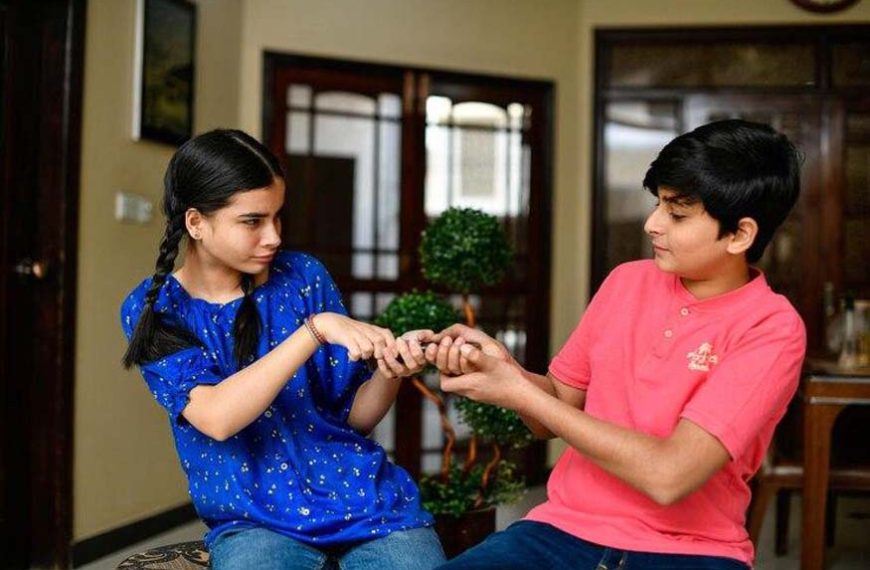As parents, we aspire to raise happy, well-adjusted kids who grow into thriving adults. One crucial part of achieving that vision is building our children’s social skills early on. Strong social abilities help kids develop meaningful relationships, handle challenges confidently, and interact positively with others throughout life.
Prioritizing social development early on pays dividends for years to come in terms of academic achievement, mental health, relationships, and career success. The following are 8 fundamental social skills kids need and how we can thoughtfully foster them day to day.
- Listening:
- Empathy:
- Sharing:
- Self-regulation:
- Responsibility:
- Friendship-Building:
- Resolving Conflicts:
- Confidence:
Listening is the foundation of good communication and relationships. Kids need to learn to listen attentively to others without interrupting. Help strengthen listening skills by:
Modeling good listening to yourself when your child speaks to you Playing listening games that involve following multi-step directions Having regular conversations where your child must listen and respond Encouraging eye contact while listening to show focus Asking open-ended questions about what was heard Praising good listening behavior
Empathy involves understanding and caring about the feelings and perspectives of others. Kids with empathy can relate better and treat others with compassion. Build empathy by:
Discussing characters’ feelings in books and shows Role-playing various scenarios to understand other views Volunteering together to help community members in need Leading by example through your own empathetic behavior Praising kind, caring actions toward peers
Sharing helps kids overcome selfish tendencies and get along better with others. Ensure kids learn to share by:
Establishing household sharing rules Taking turns with toys/games and enforcing turns Facilitating sharing with siblings and friends Discussing sharing and how it feels afterward Rewarding generous sharing behavior
Self-regulation enables kids to manage energy levels, emotions, and behavior and think before acting. Boost self-regulation with:
Teaching calming techniques like deep breathing Identifying emotions and appropriate reactions Establishing clear rules and behavioral expectations Practicing waiting patiently for needs to be met. Providing positive reinforcement of good self-regulation
Taking responsibility helps kids become more reliable and trusted. Instill responsible behavior through:
Assigning regular chores and tasks like feeding pets Letting kids plan and lead activities Discussing responsibilities family members have Having kids set and work toward goals Praising efforts to be accountable for their actions
Friendship-building skills allow kids to initiate social interactions and nurture relationships. Equip kids to make friends by:
Role-playing approaches for meeting new people Coaching appropriate conversational skills Arranging one-on-one play dates Teaching inclusiveness and issues like bullying Practicing good friendship behaviors yourself
Learning constructive conflict resolution sets kids up to handle disagreements peacefully and repair relationships. Teach healthy conflict resolution by:
Discussing win-win solutions after disagreements Modeling apology, compromise, and negotiation Coaching kids to use “I feel” statements Establishing rules around respectful fighting Mediating disagreements with peers
Confidence helps kids socially engage, try new things, and handle peer pressure. Boost healthy confidence by:
Giving authentic, specific praise and encouragement Stressing effort and progress over perfection Exploring interests that tap into their talents Practicing public speaking at home in a safe environment Focusing criticism on behaviors rather than personal attacks
The Middle School Years:
Early adolescence can be a critical time for kids to cement their social skills deeply. Pay extra attention during the middle school years to coach skills around self-regulation, responsible decision-making, friendship-building, and conflict management.
Why Are Social Skills So Critical?
Strong social skills provide a crucial foundation for other areas of kids’ development and success. Let’s explore some of the key reasons why focusing intently on social skills pays dividends down the road.
- Academic Achievement:
- Mental Health & Self-Esteem:
- Future Relationships:
- Social Intelligence for Career Success:
The link between social skills and academic performance is powerful. Kids with better social skills tend to have an easier time engaging in the classroom, working in groups, communicating with teachers effectively, handling critiques, and making friends who value education. All of those advantages can translate into improved grades, test scores, and educational attainment over time.
Kids with solid social abilities also tend to enjoy greater emotional health and self-confidence. Social success helps kids feel accepted and valued by peers, while a lack of social skills can lead to isolation, loneliness, and anxiety. Building self-esteem through positive social interactions in childhood can have mental health benefits lasting all the way into adulthood.
Another crucial reason to coach social skills early on is to prepare kids for forging and maintaining meaningful relationships throughout life. The social habits kids learn when they’re young shape their ability to one day have healthy romantic partnerships and friendships as teens and adults. Solid communication, empathy, regulating emotions, and resolving differences smoothly are social abilities that will serve them well in work relationships, too.
The modern workplace also demands advanced social and emotional intelligence. Employers today value “soft skills” like communication, collaboration, responsibility, and adaptability as much as technical abilities. Kids who come of age with sharp social skills often find greater career opportunities and advancement later on. The interpersonal abilities to network effectively, lead others, resolve workplace conflicts, and present ideas are essential for success in an increasingly team-oriented workforce.
Where Can Parents Find Support?
While parents play the lead role in coaching social skills at home, there are also great resources available for added guidance and support along the way. Here are a few ideas:
- Social Skills Classes & Camps:
- School Counselors & Therapists:
- Community Centers & Volunteering:
- Online Help & Articles:
- Books About Emotions, Friendship, and More:
- Social Skill Building Never Stops:
Specialized classes and summer camps help reinforce social learning through role-playing in everyday situations, having meaningful peer interactions in a safe environment, and building confidence. Look for programming run by child development experts tailored for various age groups.
For kids who need more focused help overcoming social struggles like anxiety or ADHD, school counselors and therapists can provide invaluable one-on-one skill-building, advice, and emotional support. Set up any needed accommodations through the school’s special education department, too.
Get the whole family involved in community centers like the YMCA and Boys & Girls Clubs which organize sports teams, after school programs with social skill building components, and youth leadership opportunities. Find volunteer positions for kids where they can practice skills, too.
Consult online articles and advice to learn about the latest social skill-building techniques, ways to troubleshoot issues, and how to shore up specific weaknesses. Connect with professionals and other parents dealing with similar social struggles.
From picture books for younger kids up to novels for pre-teens and teenagers, great children’s literature provides insight into social situations and themes that can reinforce lessons. Look for age-appropriate titles that speak to your child’s particular needs.
While the elementary school years are prime time for instilling social intelligence, the work never really stops even after kids grow up. Social abilities can continually be honed, with parents, schools, and communities all playing a part in giving kids the tools to thrive with peers and beyond. Paying attention to building social skills creates a positive impact, stretching far into the future.
While schools and programs can help reinforce skills as well, parents have the most influence. By intentionally focusing on building the social skills above from a young age and reinforcing them constantly, we can ensure our kids grow into socially intelligent, thoughtful, and kindhearted adults. With some consistent guidance, those strong social skills will serve them well for life.
For more such interesting blogs, Visit EuroKids.
















